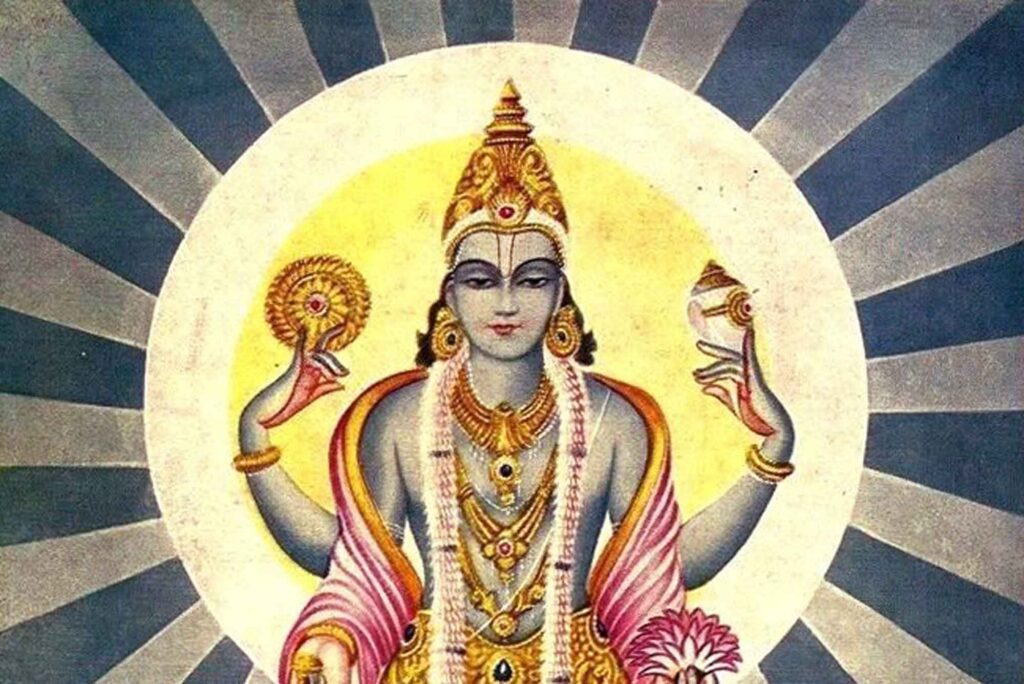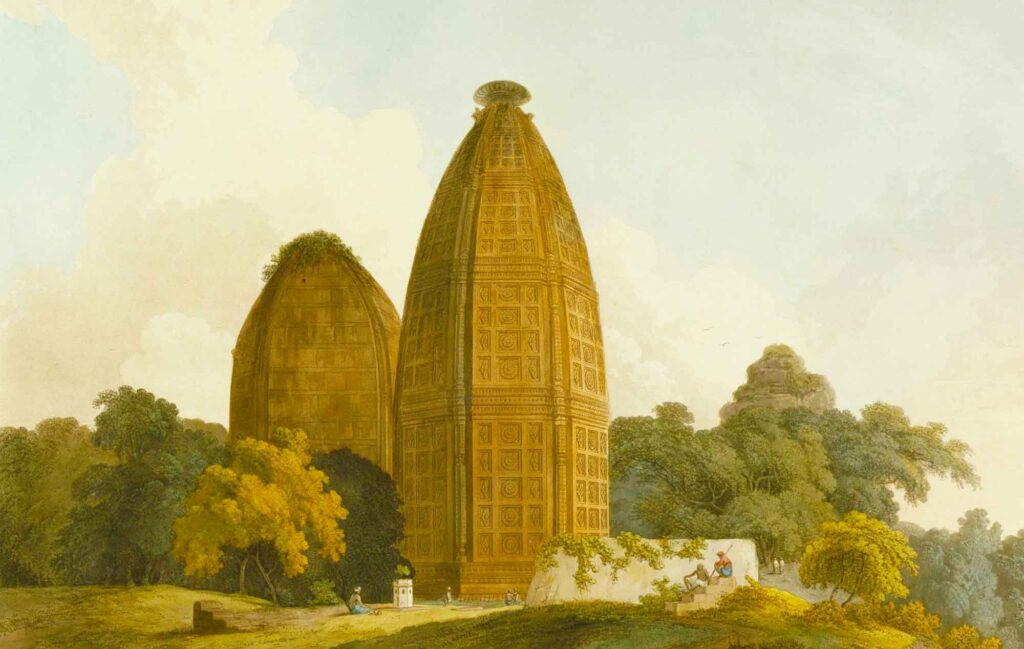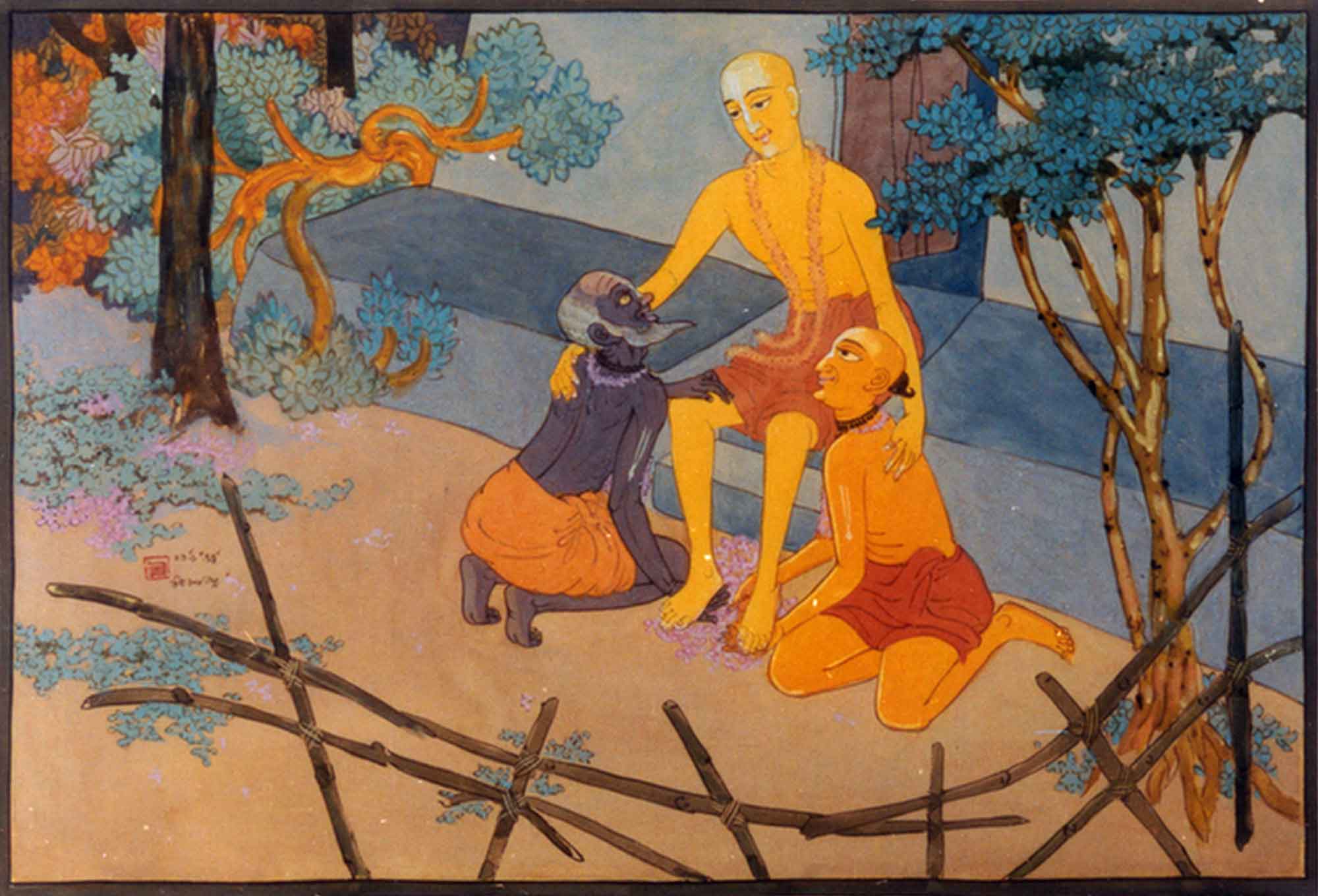Overview
Ārta-nivedana (An Earnest Appeal) was an editorial first published in Sajjana Toṣaṇī, Vol.15, issue 1 in 1903. This is one of the last articles written by Bhaktivinoda Ṭhākura in which he laments about the state of affairs regarding the preaching of Vaiṣnava dharma in Bengal, and shares with the reader the advice that he was given by Mahāprabhu Himself.
(translated by Swami B.V. Giri)
Today we are sitting in a bhajana-kuṭīra at Śrī Puruṣottama-kṣetra. Why are we leaving the city of Calcutta which is overflowing with many people and scholarly communities and escaping to such a remote province?
Long ago, when we published this Sajjana Toṣaṇī magazine, at that time there was a hope in our heart that the more that pure Vaiṣṇava dharma was propagated in the world through this magazine, the more the world would benefit. We began our work with that simple mood. Many educated gosvāmīs, bābājīs etc. from many provinces in the land of Bengal came and started helping us. Some educated persons that believed in impersonal philosophy joined with us, captivated by the beauty of pure bhakti-dharma, and began to profess pure Vaiṣṇavism. Materialists, hearing the charming teachings of Vaiṣṇava dharma, became attracted to it. Singers and musicians who were previously averse began to consider themselves successful when their minds floated in the stream of pure hari-kīrtana. Gradually, from city to city and village to village, many hari-sabhās (Vaiṣnava assemblies) were established. In this way, the glories of pure Vaiṣṇava dharma manifested within the hearts of the people of Bengal and began to fascinate and enchant everyone with its beauty and sweetness. Upon seeing such an unexpected mood in Bengal, then day by day, we propagated pure Vaiṣṇavism with enthusiasm.
Then, during the passage of time, a sudden change of mood took place.
The upādharmas (false dharma) that were like glow-worms hiding from the intense heat of the sun of Vaiṣṇava dharma suddenly took on various forms and came from all four directions. For some time, demoniac dharma in the form of māyāvāda, which was submerged in the bottomless abyss of forgetfulness, resurfaced and took shelter on the boat of the Smārta teachers of Nyāyā, whose deceptive words were disguised as statements from the śruti. At the same time, some indigenous and foreign yogīs also emerged as their collaborators and brought about a revolution in the world of dharma. Furthermore, some worthless people, who were sense-enjoyers, took shelter of upādharma and began creating a disruption in society by dressing themselves as sahajiyās, bāulas etc. Displaying the heights of their evil intentions, a few worms in the stools of prestige, propagated themselves as avatāras of Bhagavān within the society of fools. Some of them decorated themselves with beautiful and sweet names befitting a Vaiṣṇava, ornamenting themselves with various titles befitting an ācārya and began expressing opinions opposed to Vaiṣṇavism in the name of Vaiṣṇava dharma. Seeing all these unimaginable events, our hearts began to be torn apart. As we began to search for the cause of such a change of inclination, this verse of Śrīla Prabodhānanda Sarasvatīpāda suddenly manifested within our heart!
kālaḥ kalir balina indriya-vairi-vargāḥ
śrī bhakti-mārga iha kaṅṭaka-koṭi-ruddhaḥ
hā hā kva yāmi vikalaḥ kim ahaṁ karomi
caitanya-candra yadi nādya kṛpāṁ karoṣi
(Caitanya-candrāmṛta 125)
kāla haila kali, bali indriya nicaya
bhakti-patha ebe koṭi kaṅṭakādimaya
kothā yāva, ki kariba, ha’yechi vikala
nā pāile gaura-candra tava kṛpā-bala
(“The age of Kali is dark and the senses are powerful. Now the path of bhakti is strewn with millions of thorns. Where shall I go? What will I do? O Gauracandra, without the power of Your mercy, I am overwhelmed.”)
Saying this and constantly weeping, I went to the birthplace of the Lord in Māyāpura, yet still I could not be pacified. Then I left that place in search of the Lord and began to roll on the golden sands of the Lord’s transcendental land, Śrī kṣetra. Then the Lord spoke in my heart:
“O sajjana-toṣaṇī (one who gives satisfaction to the devotees)! May you attain peace! In this world, the natures that the jīvas acquire, influence them to engage in activities again birth after birth according to their respective karma. As long as desires that are opposed to bhakti are not removed, they may be given plenty of good advice, yet that will come out of their ears and never enter their hearts. Therefore, no matter how much you preach about bhakti, no matter how much you talk about bhakti, it will be of no benefit to them due to the defects of their own karma; so there will be no result from your discourses and discussions. This is My instruction to you – stay at that place where I kept my dear Hari Dāsa, where I performed loud kīrtana. Being benevolent to the poor jīvas, constantly engage in kīrtana glorifying Śrī-nāma. The sukṛti that will arise from hearing the glories of śrī–nāma, and the faith they will achieve in the greatness of the Name, will result in sincere śraddhā for pure and sincere bhakti-dharma birth after birth.”
Following all this advice of Śri Kṛṣṇa Caitanya, the Lord of the heart, we built a bhajana-kuṭīra on the beach encircled by large waves. O readers who are generous by nature! We will do our best to perform kirtana of the priceless glories of the Holy Name for you, and please – we will be blessed if you also do that.
O gracious readers! I hope that, since you are all naturally broad-hearted, you will not cast an arrogant glance upon our cry of distress, and consider it to be natural feelings arising from our simple heart.













